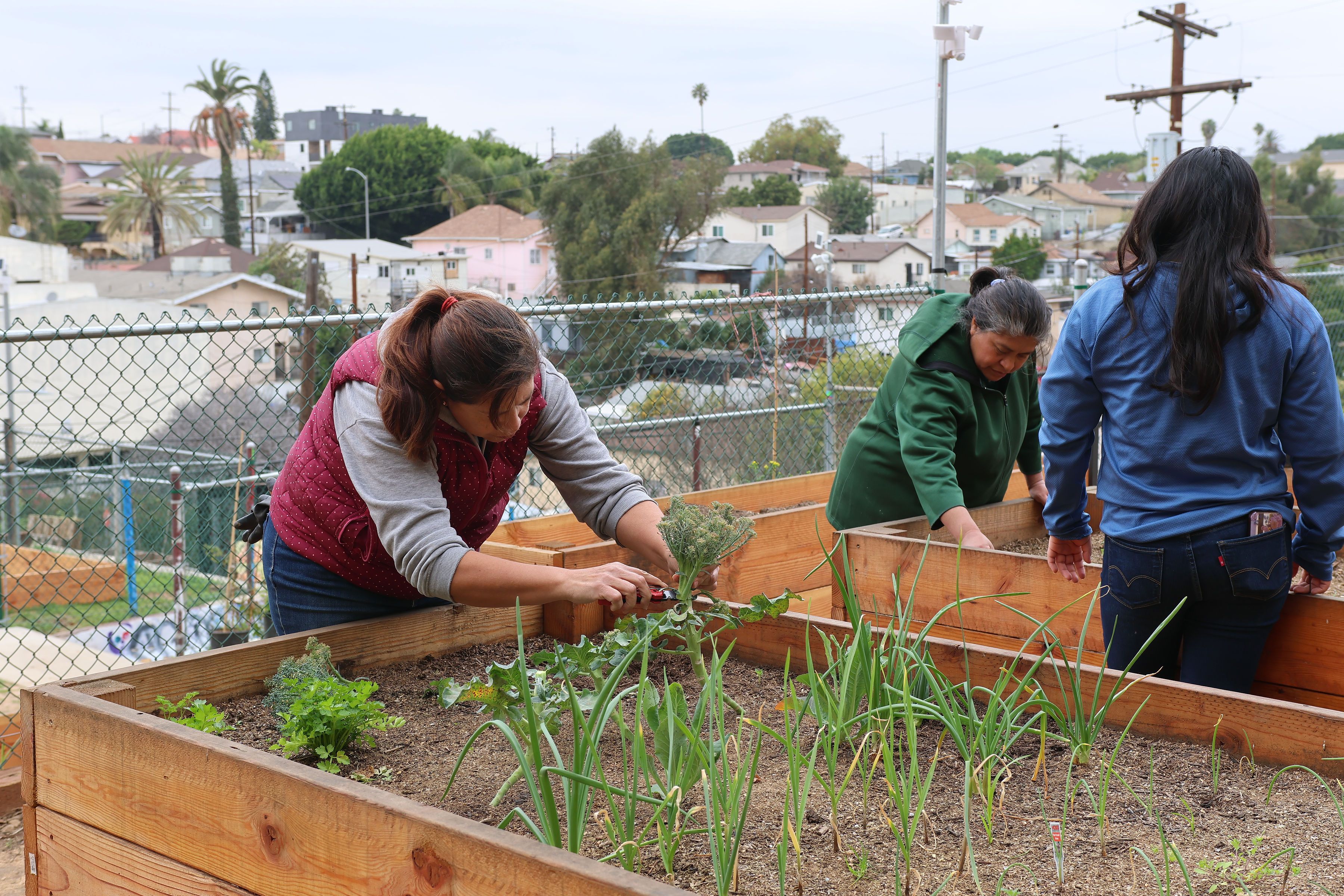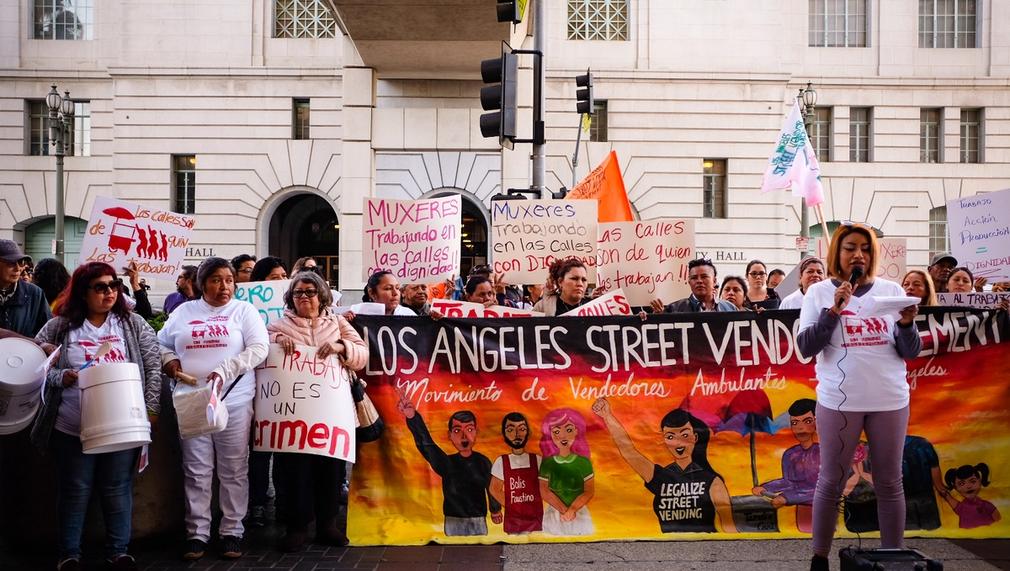3 Submitted Ideas
 CREATE ·2018 Grants Challenge·🎉 2018 Goldhirsh Foundation Winner
CREATE ·2018 Grants Challenge·🎉 2018 Goldhirsh Foundation WinnerLA Street Vendors: Building an Inclusive Economy for the Future City
We will activate Angelenos to engage in and build an inclusive economy that support LA’s 50,000 street vendors, whose entrepreneurship contributes to our neighborhood economies and cultural landscape.
- 2013 Grants Challenge·🎉 2013 Goldhirsh Foundation Winner
LA Street Vendors: A Better Economy through LowIncome Entrepreneurs
Though recognized for its street food scene, Los Angeles is the only city of the 10 largest cities in the US that does not have formal regulations around street vending. Street vending, as a widespread practice, is simply illegal. Vendors can be fined up to $1,000, be jailed for 6 months, and have their carts—their entire business—confiscated. This is bad for business, bad for customers, and bad for families.
East LA Community Corporation (ELACC) and Leadership for Urban Renewal Now (LURN) will expand income and employment for low-income Angelenos and small business owners through the Los Angeles Street and Sidewalk Entrepreneurs Initiative or LA-SSEI. LA-SSEI will promote partnerships between businesses and street vendors, start a venture capital fund that will provide working capital that will help support the growth of LA’s approximately 10,000 street vendors. By 2050, LA will decriminalize street and sidewalk vending integrate them into LA’s social and cultural life, providing Angelenos with affordable, convenient and healthy retail options. A developed pathway to success will allow a vendor to begin as an off-street market entrepreneur and end up as a fixed stall, certified farmers market retailer, or commercial tenant.
Politically, the support of established businesses is crucial to bring a policy change to the city. In this next year, the Street and Sidewalk Entrepreneurs Initiative will:
1. Build support for street vendors among brick-and-mortar businesses along major commercial corridors in Los Angeles;
2. Bring street vendors and local businesses to the same table in order to better support one another through listening and stakeholder sessions such as ELACC’s Policy con Pan Dulce and LURN’s PLUS2 conferences;
3. Create a venture capital fund for low-income entrepreneurs to allow street vendors to grow and further legitimize their businesses.
With these pieces in place, we expect to see:
1. A City-wide policy that supports street vendors, created in partnership with existing brick-and-mortar businesses who would benefit from street vendors marketing their businesses to pedestrians and passersby;
2. Closer coordination between businesses and vendors that increase profits for all involved;
3. A “Venture Capital for the ‘Hood” program that provides street vendors technical assistance and equity that allows them to scale their businesses and grow their bottom line.
ELACC and LURN believe this is a tremendous opportunity for the City to transform low-income business corridors and lift thousands of people out of poverty and unemployment through profits from vending as a source of household income. An IBISWorld Market Research Report identifies street vending as a national growth industry, with $1 billion in revenue and 8.4% annual growth between 2008 and 2012. Street vending creates employment and income opportunities for immigrant families with little start-up capital and low prospects in the formal sector. For many, street vending is the only way to legitimately take care of their families, break the cycle of poverty, and meet the demand for food in these communities.
The process for becoming licensed as a street vendor in Los Angeles is close to impossible to complete since there are many agencies to deal with and too many requirements that close opportunities to vendors. The best way to improve income and employment for these families is to give them the tools they need to legitimize their activities in the underground economy and formalize their businesses. And the only way to achieve this legislative change is through a ‘win-win’ partnership between street vendors and established brick-and-mortar businesses.
 PLAY ·2025 Grants Challenge
PLAY ·2025 Grants ChallengeCultivating Community: Greening Affordable Housing

East LA Community Corporation (ELACC) is cultivating community-led green spaces across its affordable housing portfolio in Boyle Heights to build climate resilience and improve resident well-being. This initiative integrates edible community gardens and shaded gathering spaces co-designed and maintained by tenants. It models how greening solutions can be equitably embedded in housing without triggering displacement.
